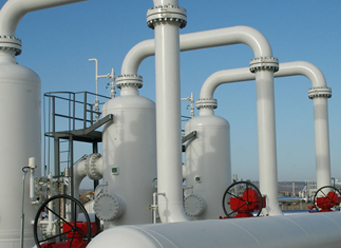Scottish Gaelic
- Afrikaans
- Albanian
- Amharic
- Arabic
- Armenian
- Azerbaijani
- Basque
- Belarusian
- Bengali
- Bosnian
- Bulgarian
- Catalan
- Cebuano
- Corsican
- Croatian
- Czech
- Danish
- Dutch
- English
- Esperanto
- Estonian
- Finnish
- French
- Frisian
- Galician
- Georgian
- German
- Greek
- Gujarati
- Haitian Creole
- hausa
- hawaiian
- Hebrew
- Hindi
- Miao
- Hungarian
- Icelandic
- igbo
- Indonesian
- irish
- Italian
- Japanese
- Javanese
- Kannada
- kazakh
- Khmer
- Rwandese
- Korean
- Kurdish
- Kyrgyz
- Lao
- Latin
- Latvian
- Lithuanian
- Luxembourgish
- Macedonian
- Malgashi
- Malay
- Malayalam
- Maltese
- Maori
- Marathi
- Mongolian
- Myanmar
- Nepali
- Norwegian
- Norwegian
- Occitan
- Pashto
- Persian
- Polish
- Portuguese
- Punjabi
- Romanian
- Russian
- Samoan
- Scottish Gaelic
- Serbian
- Sesotho
- Shona
- Sindhi
- Sinhala
- Slovak
- Slovenian
- Somali
- Spanish
- Sundanese
- Swahili
- Swedish
- Tagalog
- Tajik
- Tamil
- Tatar
- Telugu
- Thai
- Turkish
- Turkmen
- Ukrainian
- Urdu
- Uighur
- Uzbek
- Vietnamese
- Welsh
- Bantu
- Yiddish
- Yoruba
- Zulu
Telephone: +86 13120555503
Email: frank@cypump.com
Samh . 14, 2024 13:55 Back to list
sewage transfer pump
The Importance of Sewage Transfer Pumps in Wastewater Management
Sewage transfer pumps play a crucial role in modern wastewater management systems. They are essential for the transportation of sewage and wastewater from one location to another, ensuring that contaminants are effectively removed from residential, commercial, and industrial settings. This article will discuss the importance of sewage transfer pumps, their functioning, types, and the benefits they offer to communities and the environment.
How Sewage Transfer Pumps Work
Sewage transfer pumps are specially designed to handle the harsh conditions associated with wastewater. Unlike regular pumps, they are built to handle solid waste and other debris. The operation of these pumps is relatively straightforward. When wastewater enters the pump, it is collected in a holding tank. Once the level of the sewage reaches a certain point, the pump activates and begins to transfer the sewage to treatment facilities or disposal sites.
These pumps use various mechanisms to move the liquids. The most common type is centrifugal pumps, which use a rotating impeller to create a vacuum that draws sewage into the pump and pushes it out through the discharge line. Other types include submersible pumps, which are installed below the water level, and positive displacement pumps, which move sewage by trapping a fixed volume and forcing it through the discharge line.
Types of Sewage Transfer Pumps
There are several types of sewage transfer pumps available, each suited for different applications.
1. Submersible Sewage Pumps These are designed to operate while submerged in sewage water and are commonly used in residential and commercial applications. They are efficient, can handle solids up to a certain size, and are ideal for lifting sewage from basements or lower levels to the sewer system.
2. Centrifugal Sewage Pumps Often preferred for municipal applications, these pumps handle higher volumes of wastewater efficiently. They can also manage suspended solids but may require a more significant maintenance effort compared to submersible pumps.
3. Positive Displacement Pumps These pumps are excellent for applications where high pressure is needed, as they can move sewage over long distances. They are less common than centrifugal pumps but are valuable for specific industrial processes.
sewage transfer pump

4. Self-Priming Pumps These are capable of drawing fluid into the pump without needing to be submerged, making them suitable for portable applications or where a traditional pump may not be viable.
Benefits of Sewage Transfer Pumps
The benefits of sewage transfer pumps extend beyond just the transportation of wastewater. They play a pivotal role in safeguarding public health and promoting environmental sustainability.
1. Health Protection By efficiently transferring sewage to treatment facilities, these pumps help prevent the accumulation of waste, which can lead to health hazards and the spread of waterborne diseases.
2. Environmental Sustainability Sewage transfer pumps facilitate the treatment and recycling of wastewater. This process minimizes the discharge of pollutants into water bodies, helping to maintain the quality of ecosystems.
3. Operational Efficiency Modern sewage transfer pumps are designed for high efficiency and reliability. This reduces energy consumption and operational costs, making wastewater management more sustainable.
4. Contributes to Infrastructure A well-maintained sewage transfer pump system is vital for urban infrastructure, as it underpins sanitation services. This, in turn, supports residential comfort and city livability.
Conclusion
Sewage transfer pumps are indispensable components of urban wastewater management. They ensure the safe and efficient movement of sewage, protect public health, and enhance environmental sustainability. As cities continue to grow and the demand for efficient waste management systems increases, the role of sewage transfer pumps will only become more critical. Investing in advanced pumping technology and maintenance can lead to better performance, reduced emissions, and a cleaner, healthier world for future generations.
-
Reliable Non-Clog Sewage Pumps with GPT-4-Turbo Tech
NewsAug.04,2025
-
High-Performance Air Pumps for Sand & Gravel | Efficient Transport
NewsAug.03,2025
-
ISG Series Vertical Pipeline Pump - Chi Yuan Pumps Co., LTD.|Energy Efficiency, Corrosion Resistance
NewsAug.03,2025
-
ISG Series Pipeline Pump - Chi Yuan Pumps | Energy Efficiency&Compact Design
NewsAug.03,2025
-
ISG Series Vertical Pipeline Pump - Chi Yuan Pumps Co., LTD.|High Efficiency, Low Noise, Durable
NewsAug.02,2025
-
ISG Series Vertical Pipeline Pump - Chi Yuan Pumps | High Efficiency, Low Noise
NewsAug.02,2025










